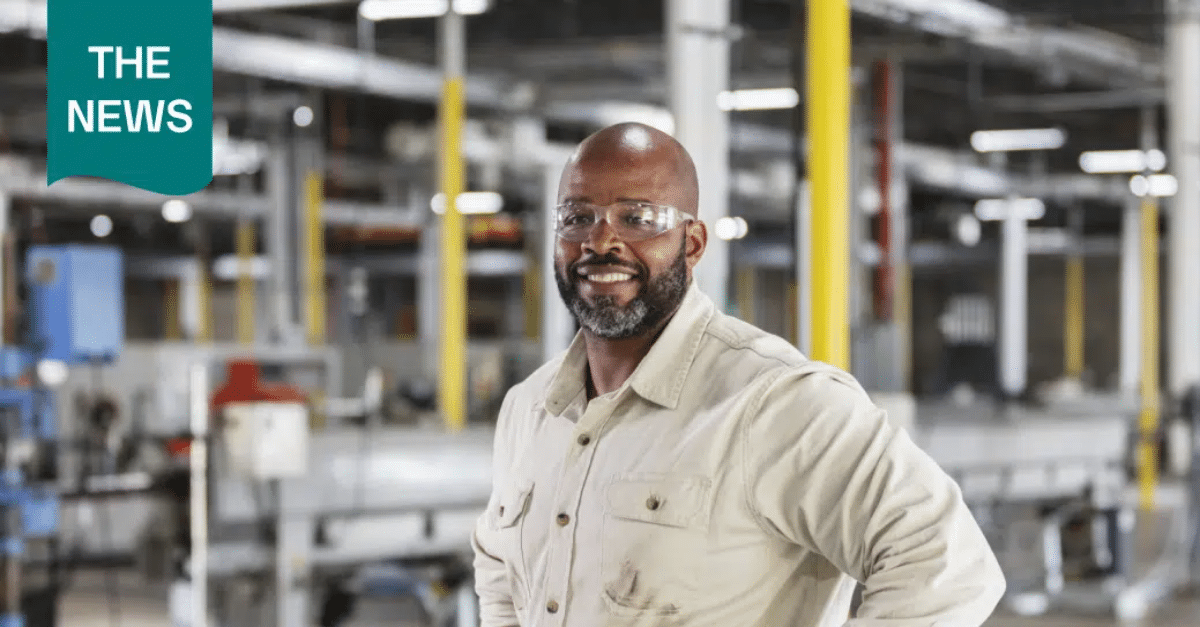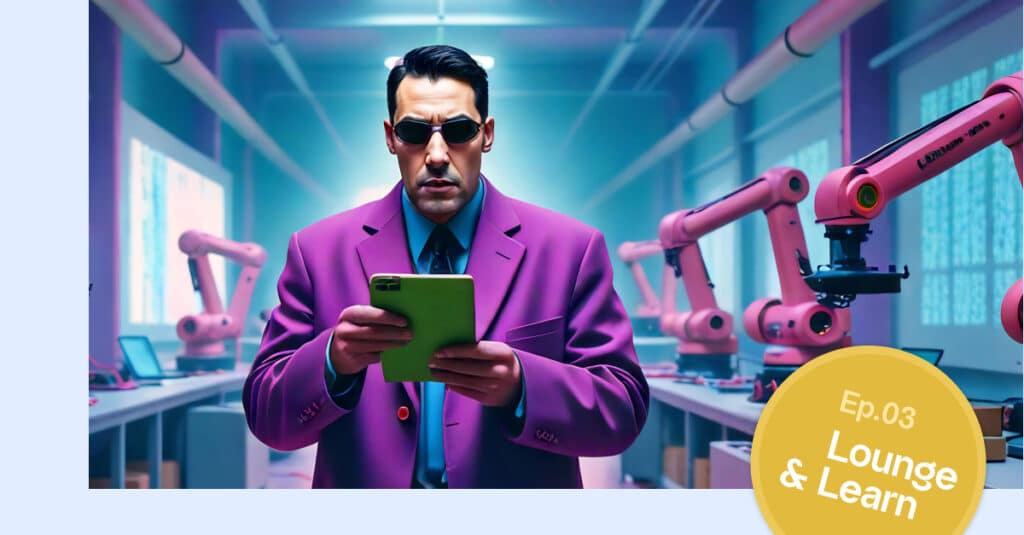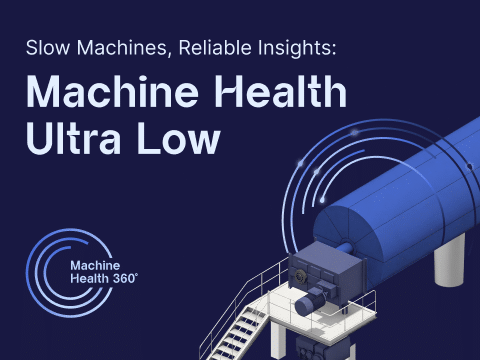
This year’s World Earth Day focuses on solving our problems with plastics. There’s a lot of work to be done. Can AI help? Please read all about it in our regular round-up of manufacturing-related news.
Once upon a time, plastics were like AI: “the future”. As famously illustrated in the 1967 Oscar-winning film The Graduate, the young Dustin Hoffman character was forced to listen to an older businessman’s job advice: “One word: plastics. There’s a great future in plastics.”
Well, today, the future is here, and plastics have proven to be a mixed blessing… And now, we’re saying: “AI is the future!” [Insert: alarm bells?]
Homo Plasticus
The theme for World Earth Day 2024 on April 22 has a series of goals: “to advocate for widespread awareness on the health risk of plastics, rapidly phase out all single-use plastics, urgently push for a strong UN Treaty on Plastic Pollution, and demand an end to fast fashion.”
It’s a worthy call to action. Especially since plastics remain ubiquitous. We breathe it, eat it, and drink it. It fills our landfills and fills our bodies (and placentas). Recent research suggests plastics also affect our immune system.
Plastics have even become an intrinsic part of our culture. Lego! Barbie! Rubber duckies!
A Circular Train Wreck
To deal with our plastic problem, we must overcome a dizzying array of challenges. The main one is that plastics have to be sorted into thousands of different types before they can be recycled appropriately – but then the quality deteriorates with each round of recycling, which makes the current process far from circular.
Even the much-touted “chemical recycling,” where plastics get broken down into component parts, is not yet delivering, according to ‘A Breakthrough in Plastic Recycling Is Coming Up Short’.
A recent research paper in Nature, ‘Designing A Circular Carbon And Plastics Economy For A Sustainable Future’ sketches out several scenarios. “Only one of which achieves sufficient greenhouse gas savings in line with global climate targets. Such a bold system change requires 50% reduction in future plastic demand, complete phase-out of fossil-derived plastics, 95% recycling rates of retrievable plastics and use of renewable energy.”
Meanwhile, people continue to produce 350 million tons of plastic waste annually – a figure set to triple by 2060. Only around 5% is recycled in the USA, and 15% in the EU. And virgin plastic production is set to rise 40% over the next ten years. [Source]
But happily, hundreds of manufacturing organizations worldwide have meanwhile pledged their commitment to a New Plastics Economy.
Let’s get to work.
Citrus Skins. Is It Enough?
“Reducing the use of plastic is an obvious way to push back against a changing climate. Plastic is created from fossil fuels, the biggest contributor to greenhouse gases. It chokes the oceans and seeps into the food chain. Estimates vary, but about 40 percent of plastic waste comes from packaging,” according to ‘So Much Produce Comes in Plastic. Is There a Better Way?’
“Yet plastic has so far been the most effective tool to fight another environmental threat: food waste.” In short, one study showed one thrown-away rotting cucumber has the same environmental impact as 93 plastic cucumber wrappers.
So yes, it’s a tricky balance.
Meanwhile, many are working on plastic alternatives – from citrus cellophane to jelly ice to edible containers. But a problem remains: consumers. While most do not want to use plastic, most still send another message with their wallets. Look at the $4.3 billion of bagged salad bought in the US alone last year.
“The pushback you are getting is that if you eliminate plastic and go to fiber, it depletes the shelf life really fast,” says one supermarket VP. “The question is which side of the balloon are you trying to squeeze?”
“The ideal solution, he said, would be to go back to the days before plastic, when grocers stacked their produce by hand and no one demanded that seasonal fruit like blueberries be available year-round.”
“I don’t think we’re going to live to see that,” says the VP.
So… Is AI The Future Of Dealing With Plastics?
AI is being applied on many fronts in the battle against plastic waste. For instance, the renowned Ocean Cleanup Project has long used AI-powered cameras to evaluate the best places to target their efforts. More recently, the company has been busy using AI to chart the state of ocean plastic from the vantage of space.
But what happens to plastics once they are collected? Not much…
“That’s why Bollegraaf, the world’s biggest builder of recycling plants, and the AI start-up Greyparrot are rolling out artificial intelligence systems for sorting recycling,” according to ‘How The World Of Recycling Is About To Be Transformed’. “The companies plan to retrofit thousands of recycling facilities around the world with computers that can analyze and identify every item that passes through a waste plant.”
By cutting contaminations, recycled materials would become more valuable and attractive to companies to make new products out of them.
Plus: “The AI systems are so accurate, they can identify the brands on individual items.” So, perhaps down the road, misbehaving brands can be named and shamed if they are not meeting their commitments to the public or their shareholders. (It’s always good to have a Plan B.)
Stella!
Meanwhile, in other futuristic let’s-hope-it’s-scalable news: “Protein Evolution uses artificial intelligence to determine the correct enzymes to recycle textile and plastic waste into fresh materials,” according to ‘AI Enables Customization Of Enzymes To Recycle Plastic Waste’.
The process “takes mixed plastic and textile waste, analyzes its composition to prepare it for biological recycling, and then applies enzymes designed using artificial intelligence (AI) to break it down into feedstock, such as polyester chips for fiber and fabric manufacturing. […] The first garment made with Protein Evolution’s biologically recycled polyester process was a “parachute” parka by Stella McCartney.”
Sounds amazing. But instead of only thinking about how amazing we’d all look in such a parka, we should also think about how we can make AI amazing to contribute in helping us with our plastic problem – while making sure it doesn’t create its own unforeseen problems.
Whatever we do, let’s not hear: “AI is the new plastics.”
Read last month’s ‘Manufacturing – The News: Always Chasing The Sweet Spot’.




